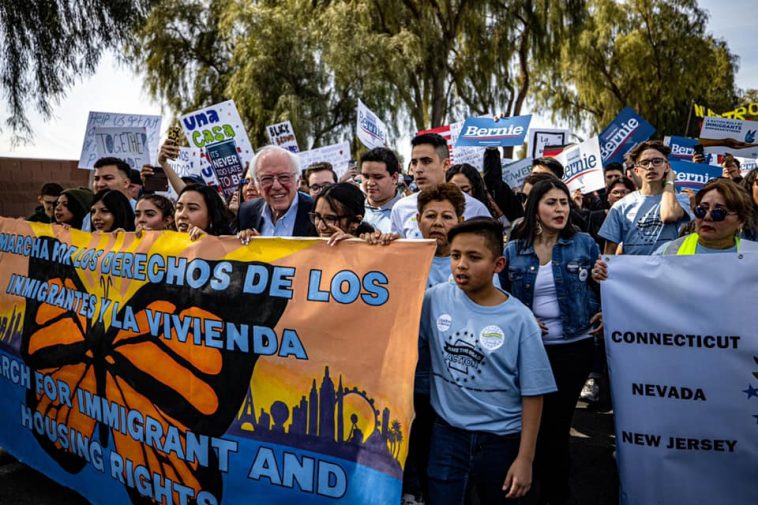With the Nevada caucuses now just days away, we take a look at the factors that could be key to a Sanders win on Saturday.
He’ll be looking to cement his front runner status, which in 2016 he gave up to Hillary Clinton after she won by around 6 percent to take the momentum back after Sanders’ big win in New Hampshire.
Unlike Iowa, which has had first in the nation status for decades, the Nevada caucuses as a major contest are a relatively new innovation. Prior to 2008 they were one of a number of caucuses held around the middle of primary season on the same day as a number of others.
The shift to being the third contest of the primaries came at the initiative of then Senator Harry Reid and others to have a more diverse state vote early, given the overwhelmingly white populations of Iowa and New Hampshire.
A key advantage for Sanders will be his advantage in the polls with minority voters in a state where around 4 in 10 caucus goers last time were from a minority. Here are some other things to keep an eye on:
- Whilst Nevada is a big state geographically, it’s population is very concentrated, with over 85 percent of votes coming from the large population centres of Las Vegas (Clark County) and Washoe County (Reno); all up Clark County is around 70 percent of the state’s total
- Demographically, Clark County is basically reflective of Nevada as a whole, including being 29% Hispanic or Latino, and with Sanders polling as well as 66% with them, a big win in Clark County and statewide could also bode especially well for key Super Tuesday contests in California (34% Hispanic) and Texas (39% Hispanic)
- One unique aspect of the Nevada caucuses is in addition to normal precinct based caucuses, there are special caucuses on the Las Vegas Strip for casino workers; last time around the Clinton campaign organised effectively for these, giving her an edge, so if Sanders can perform well at them on the night it will be another boost
Final analysis
For all of the candidates, Nevada is in many ways the biggest test yet; the early states have given a fair idea of the strengths and weaknesses of each candidate in a campaigning sense, but Nevada is the first test of their ability to appeal to a broadly representative electorate. The good news for Sanders is he appears to have cut through with key voter groups
It’s difficult to get a clear picture given the relatively lack of polling, but we can say with a reasonable degree of confidence Sanders will win in Nevada, and there are signs it could be big.



